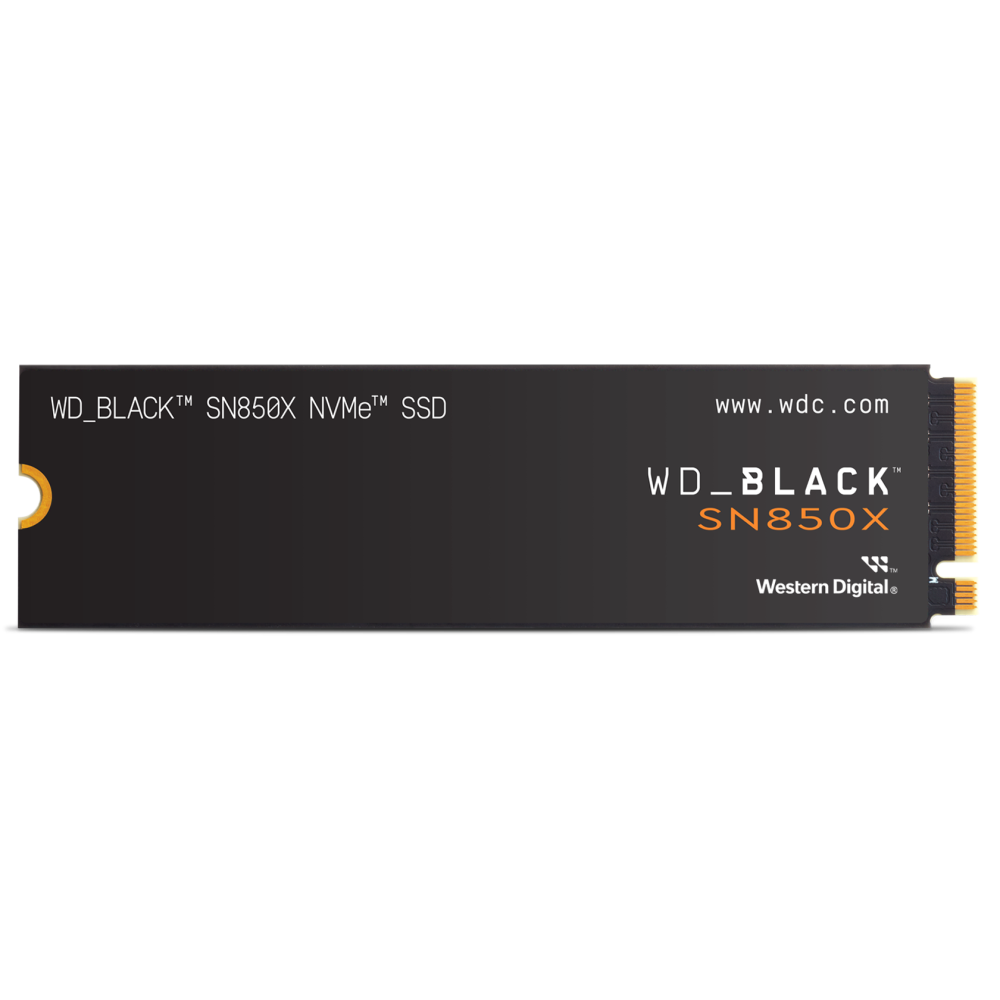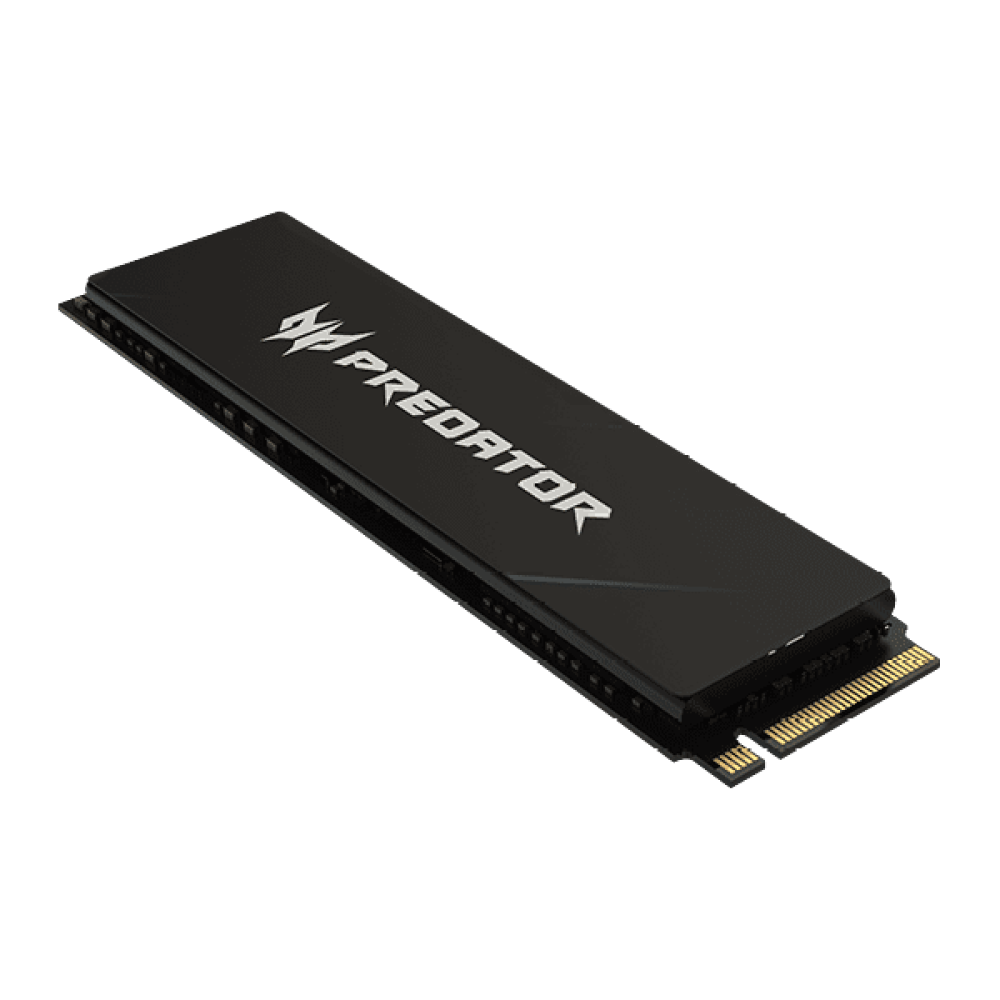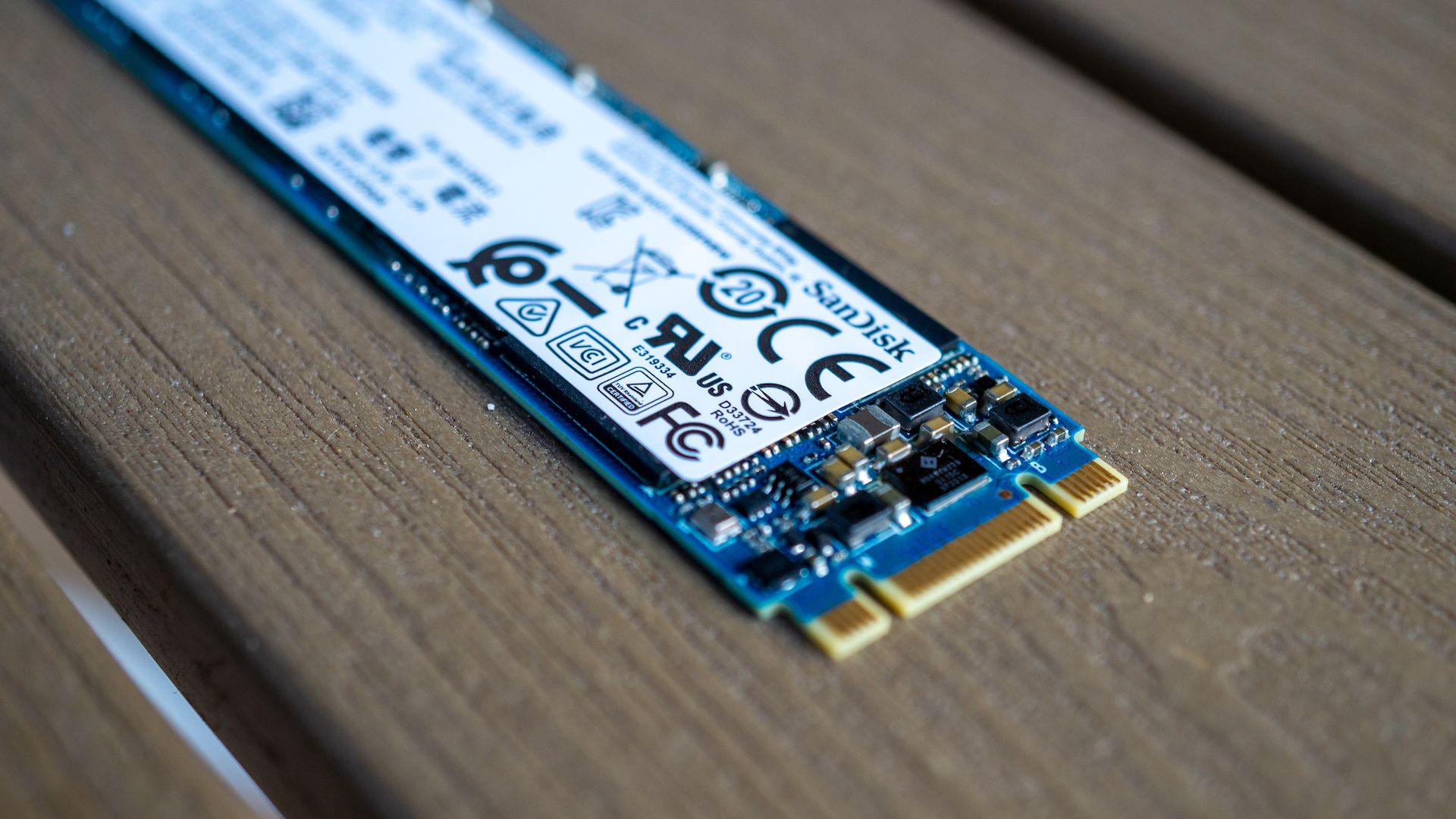Are you building a new gaming PC? Or perhaps you’re in the market for a prebuilt desktop gaming PC or a gaming laptop and don’t know how much storage you need? Read on and find out.
Don’t Play Triple-A Games? Start With 500GB
500GB of SSD storage is an absolute minimum, but only if you don’t play AAA games or are fine with having just a handful of games installed on your PC at once.
For starters, after we account for the size of the Windows installation, necessary apps, and personal data stored on the system drive, you’re left with more or less 450GB that you can use to store games. Add a couple of multiplayer titles, and the amount of storage will drop to about 300GB or less, which is enough for only a couple of big-budget titles.
If you’re okay with having 300GB of SSD storage for games, that’s fine. But the reality is that 300GB will hardly be enough unless you’re ready to regularly delete games to make room for new ones (something you’ll probably have to do anyway, even with heaps more storage). You’ll have an easier time if you don’t play triple-A games at all or are a patient gamer who sticks to releases that are five years old or more.
For example, I haven’t yet upgraded my ROG Ally’s 512GB SSD because I simply don’t run triple-A games on it. I stream them from my PC instead. If I were playing these games natively on the ROG Ally, I’d upgrade that SSD during the first week of ownership.
If you’ve recently bought a pre-built gaming PC or a gaming laptop that only includes a 500GB SSD, that’s because system builders and laptop brands love to cheap out on storage. I recommend moving to at least a 1TB SSD as soon as possible to solve your storage woes for good.
I Wouldn’t Go Below 1TB of Storage
If you’re building your own PC, I urge you to put at least a 1TB SSD in it. These are only $10 to $20 more than 500GB models. You can get one of the best SSDs for gaming, the TEAMGROUP MP44L, a speedy NVMe SSD, for around $55, and solve your storage woes from the get-go.
It beats opting for a 500GB SSD and then immediately having to start saving cash for a new SSD because you filled it with games during the first week of ownership.
This amount of storage is sufficient for half a dozen triple-A games, a few multiplayer titles, and a whole heap of indies and older titles. You’ll have enough free storage left to install new releases as they appear too.
2TB Is Optimal for Most Gamers
2TB is the optimal amount of storage for the average PC gamer who plays both single and multiplayer games and enjoys both AAA and indie titles. I’ve got a 2TB drive in my own PC, and since I have an uncapped 500Mbps internet plan, I’ve never managed to fill it up. I don’t think twice before deleting games I haven’t played in a while, since I know I can download them again in an hour or so.
2TB SSDs provide the most bang for your buck when it comes to price per gigabyte. One of the best SSDs around, the WD_BLACK SN850X, will set you back $85 for the 1TB version at the moment of writing. The 2TB model costs $150, meaning you only pay $65 extra to get another terabyte of storage.

WD_BLACK SN850X
$161 $200 Save $39
The WD_BLACK SN850X is one of the fastest PCIe 4.0 SSDs around, and the 2TB version is perfect for every PC gamer.
This much storage will allow you to hoard games for months before you’ll even have to start thinking about making cuts.
4TB or More Is for Game Hoarders
If you’re one of those people who like having all of their games installed on their PC at once or are unfortunate enough to not have access to an uncapped data plan, 4TB of SSD storage should be more than enough.
Even if you only play triple-A games, a 4TB SSD should allow you to have around 50 big-budget titles installed at once. If you’re an omnivore gamer who plays all kinds, 4TB of storage should be enough to have 100 or more games on your PC. I don’t think that will ever happen, but feel free to prove me wrong.
Even if you don’t plan to have half of your Steam library installed on your PC, 4TB SSDs aren’t ridiculously expensive anymore. If you need lots of fast SSD storage for one reason or another, getting a 4TB SSD is definitely worth it.

Acer Predator GM7000 4TB
When it comes to 4TB SSDs the Acer Predator GM7000 4TB offers the best price to performance ratio on the market. Speedy performance, DRAM cache, great price even when not on sale, and tons of storage space are reasons enough to recommend this SSD to PC and PS5 gamers in need of lots of fast SSD storage.
The TEAMGROUP MP44, a PCIe 4.0 SSD that packs more than enough performance for gaming, can be regularly found for about $240, which boils down to $60 per terabyte. The Acer Predator GM7000, another excellent PCIe 4.0 SSD, has an MSRP of $270, which is just $67.50 per terabyte.
Are Hard Drives Still Worth It for Gamers?
Personally, I wouldn’t store games I’m currently playing or titles I revisit on a regular basis on a hard drive. NVMe, and especially SATA SSDs, are affordable enough nowadays for anyone, even budget PC gamers, to have at least 1TB of speedy storage on their PCs.
Many newer AAA titles can run slowly or stutter non-stop when installed on an HDD, because they constantly stream new data from the storage drive to RAM, and HDDs are too slow for data to be streamed without hitches.
That said, HDDs are still great for storing video files, backups, or as long-term storage. They can be a great temporary game storage solution for people who have slow internet or are data-capped.
Steam and the Xbox app allow gamers to easily move their game files to different drives. So you can, for example, move a game from your SSD to your HDD to make room for another title instead of deleting it. Once you finish the current game and want to revisit the title stored on your HDD, move it back to the SSD, and you’re off to the races. This is faster than starting the download again.
HDDs are also fine for storing older games and indie titles that have lower hardware demands. That said, I’d always rather have a game I’m currently playing installed on an SSD to allow for markedly faster loading times. For example, Fallout 4 takes ages to load when installed on a hard drive, but it takes only a couple of seconds to load on my SSD.
At the end of the day, the more storage you have, the better, but the sweet spot for your average PC gamer is 2TB of fast SSD storage. That way, you’ll have enough space for new titles without having to delete games you rarely play to make room for new and shiny titles.






